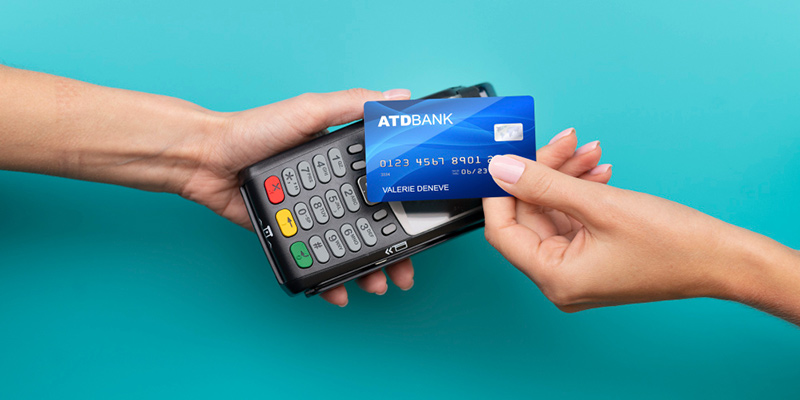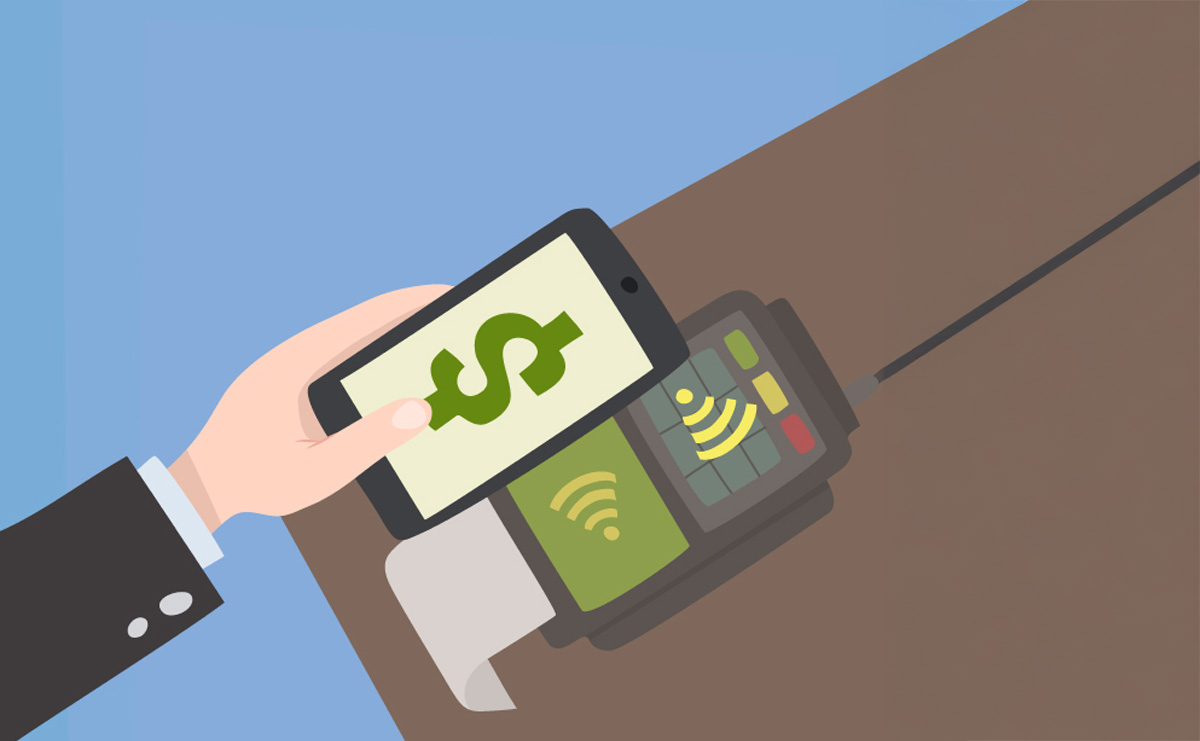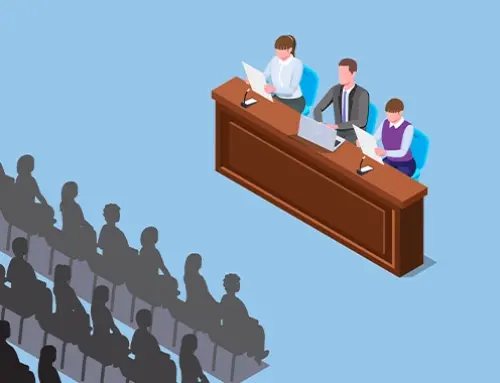Contents
Smart Reasons Lawyers Should Accept Credit Cards Now
Law firms find themselves under tighter pressure to embrace modernization in billing processes. Among the key changes is being able to take credit cards so as to facilitate payment and expedite payments. Prospective customers often inquire about, do attorneys take credit cards, and pray to be favorably answered. Having convenient means of paying lawyers enhances client satisfaction and lessens administrative hassle. Being electronic supports improved cash management flow as well as professional reputability.
Why More Lawyers Take Credit Cards Today
I. Growing client demand for credit card payments
Clients increasingly expect the same convenience from legal services that they receive from other professional sectors. One of the most requested features is the ability to use credit cards for legal fees. This expectation is especially prevalent among younger, tech-savvy clients who prioritize speed and ease of use in every interaction. Law firms that meet this demand are more likely to convert consultations into paying clients.
II. Industry trends showing law firms embracing card payments
The legal industry has historically relied on traditional billing methods, but that trend is shifting. More attorneys are responding to the common question, do lawyers take credit cards, with a definitive yes. From solo practitioners to mid-sized firms, professionals are adopting digital payment solutions to enhance efficiency and client service. The shift also aligns with broader changes in legal tech, where integrated billing tools are becoming standard.
III. Ethical and compliance updates enabling this shift
Concerns over ethical compliance and trust account management have often made law firms hesitant to adopt digital payment tools. However, updated guidance from many state bar associations now supports the use of online platforms for lawyer payment, provided proper safeguards are in place. These updates give legal professionals greater confidence in offering modern billing options without compromising ethical obligations. With these barriers removed, firms are in a stronger position to meet client expectations while maintaining professional standards.

The Benefits of Credit Cards for Lawyer Payment
I. Faster payment collection
Legal services often involve high-value transactions that clients may not be able to pay for immediately through traditional means. Accepting credit cards allows law firms to collect fees faster, improving overall cash flow. Clients are more likely to settle invoices promptly when they can use flexible payment options, reducing the average time accounts remain outstanding.
II. Reduced administrative overhead
Manually tracking invoices, sending reminders, and processing checks can consume significant administrative time. Offering digital payment solutions, especially when clients ask, do lawyers take credit cards, streamlines billing operations. Automation features available in many payment platforms help minimize human error and free up staff resources for higher-value tasks.
III. Increased client satisfaction
Modern clients value ease of access and efficiency in every professional interaction. Providing clear, user-friendly options for lawyer payment contributes to a better overall client experience. It eliminates confusion around payment procedures, reduces friction at the billing stage, and enhances the firm’s image as a professional, client-focused operation. Satisfied clients are more likely to return for future legal needs and refer others to the firm.
How Lawyers Can Start Accepting Credit Cards
I. Choosing a legal-friendly payment processor
Selecting the right payment processor is essential for maintaining compliance and protecting client trust. Not all vendors are suitable for law firms, particularly when dealing with trust account requirements. Look for providers that offer dedicated features for handling credit cards in legal settings, such as separating earned and unearned funds and integrating with legal practice management tools. Compliance with ABA guidelines and state bar regulations should be non-negotiable.
II. Setting up secure online payment portals
Clients expect secure, accessible ways to pay their legal bills. A professional online portal allows firms to accept payments directly from their website, offering convenience and reducing the need for manual collection. When evaluating platform options, law firms should also consider how often potential clients ask, do lawyers take credit cards, and whether their current systems meet that expectation. Security features like encryption, PCI compliance, and audit trails should be standard.
III. Integrating payments into practice management tools
To ensure seamless billing workflows, firms should integrate payment systems with their broader practice management software. Doing so automates invoice creation, tracks payment history, and updates financial records in real-time. This level of integration supports accurate reporting and reduces administrative burden while simplifying the lawyer payment process for both staff and clients. Many legal software platforms now offer built-in or third-party payment solutions specifically tailored to the legal industry.
Common Pitfalls When Lawyers Take Credit Cards
I. Handling trust accounts and retainers ethically
When law firms receive client funds via credit cards, they must adhere to strict guidelines to avoid ethical violations. Specifically, unearned client funds should be deposited into a designated trust account, not a general operating account. The payment processor must be capable of directing funds appropriately to maintain compliance with the rules governing client trust funds. Mishandling these funds, even unintentionally, can lead to disciplinary action or loss of licensure.
II. Watching out for processing fees
Processing fees are an unavoidable part of accepting digital payments, and law firms must handle them correctly. One common issue arises when clients ask, do lawyers take credit cards, and are then surprised by additional charges. Law firms must understand whether they are permitted to pass these fees on to clients and how doing so affects the structure of fee agreements. Firms must also ensure that processing fees are not deducted from client trust accounts, which could result in violations of trust accounting rules.
III. Avoiding chargebacks and disputes
Chargebacks pose a risk in any business that accepts card payments, and the legal field is no exception. To reduce the likelihood of disputes, clear billing practices and detailed engagement letters should outline the scope of services and associated costs. This transparency helps to justify charges if a client attempts to reverse a lawyer’s payment. Additionally, firms should maintain detailed records of communications, agreements, and work performed to support their position in any chargeback process. Implementing strong client communication protocols can further minimize misunderstandings and prevent payment reversals.
Communicating Credit Card Payment Options to Clients
I. Adding payment info on retainer agreements
The retainer agreement serves as the foundation for the attorney-client financial relationship. Including clear terms about accepted forms of payment—such as credit cards—establishes transparency and prevents confusion later. Firms should specify whether card payments are accepted for retainers, hourly fees, or both, and note any limitations or fee policies. By setting these expectations early, law firms can reduce billing disputes and improve collection rates.
II. Promoting payment options on your website and email
Clients often search for convenience when choosing a law firm, and visible information about payment methods can influence that decision. For potential clients who wonder, do lawyers take credit cards, prominently placed messaging on the firm’s website provides a definitive answer. Additionally, including payment details in consultation confirmation emails, newsletters, or follow-up communications helps reinforce the message. Clear and accessible communication builds trust and simplifies the payment process.
III. Using intake forms to educate clients early
Client intake is a critical opportunity to provide payment-related information. When clients complete intake forms, law firms can use that touchpoint to outline accepted methods, including the option for lawyer payment by card. This practice ensures clients are informed from the outset and reduces questions or delays when invoices are issued. Integrating this information into the intake workflow standardizes communication and improves the overall client experience.
Alternatives to Credit Cards for Lawyer Payment
I. ACH transfers and e-checks
While credit cards offer speed and convenience, some clients prefer or require alternative electronic methods. ACH transfers and e-checks provide a secure way to move funds directly from a client’s bank account to the law firm’s account. These options often come with lower transaction fees, making them cost-effective for both parties. They are particularly well-suited for high-value payments where credit card limits may be restrictive or when clients seek to avoid interest charges.
II. Peer-to-peer payment platforms
As consumer habits evolve, some clients inquire whether do lawyers take credit cards or accept mobile apps like Venmo, Zelle, or PayPal. While these platforms are not traditionally designed for legal services, they may be appropriate for certain firms, especially solo practitioners or those handling low-risk, flat-fee cases. However, attorneys must exercise caution and ensure that any peer-to-peer payment method complies with legal ethics rules, including client confidentiality and proper trust accounting practices.
III. Payment plans and subscriptions
Offering structured lawyer payment options such as payment plans or subscription models can enhance affordability and client retention. Payment plans allow clients to manage their legal costs over time, while subscription models provide ongoing legal services for a fixed monthly fee. These options can be supported by various billing systems and help firms stabilize revenue. Clear agreements outlining terms, due dates, and consequences for non-payment are essential to maintaining professionalism and avoiding disputes.
Why Offering Card Payments Gives Lawyers a Competitive Edge
I. Meeting modern client expectations
Today’s legal consumers prioritize convenience and digital access in all service interactions. Offering payment through credit cards aligns law firms with these expectations, making the billing experience faster and easier for clients. When payment is streamlined, clients are more likely to perceive the firm as responsive and client-focused. This perception can influence hiring decisions and improve overall client satisfaction.
II. Improving access to legal services
Flexibility in payment options helps lower the barrier to entry for clients who may not have immediate cash available. When prospective clients ask, do lawyers take credit cards, a positive response can make legal representation accessible to individuals who might otherwise delay or forgo services. Expanding payment methods broadens the firm’s potential client base and supports more inclusive access to justice.
III. Building trust and convenience into your brand
Law firms that prioritize smooth billing processes position themselves as professional and forward-thinking. Offering diverse lawyer payment options, including digital and automated systems, enhances the client experience from initial contact through final invoice. Transparent, flexible payment processes reduce tension around billing and help reinforce client trust. Over time, these operational choices contribute to a stronger reputation and increased client loyalty.
Upgrade Your Practice: Make Lawyer Payment Simple
Modernizing how your firm handles lawyer payment is no longer optional—it is essential. Clients expect flexibility, clarity, and efficiency in every interaction, including billing. Accepting credit cards allows law firms to meet these expectations, improve cash flow, and simplify administrative tasks. Ethical guidelines now support digital payments when handled correctly, making this transition both practical and compliant with professional standards.
When prospective clients ask, do lawyers take credit cards, a confident “yes” signals that your firm is equipped to serve today’s legal consumer. Beyond convenience, offering multiple payment options shows your commitment to accessibility and client satisfaction. As the legal industry continues to evolve, law firms that embrace digital billing tools will be positioned for long-term growth and stronger client relationships.
Streamline Lawyer Payment with RunSensible
Ready to make billing effortless for your firm and your clients? RunSensible lets you accept credit cards securely and ethically, with built-in tools designed for law practices. When clients ask, lawyers take credit cards, your firm can answer confidently—thanks to automated billing, trust account compliance, and customizable payment links.
RunSensible also integrates your entire workflow, from client intake to final lawyer payment, in one easy-to-use platform. Get paid faster, reduce no-shows with automated reminders, and keep all billing records organized in a single dashboard. Start your free trial and modernize your practice today.
FAQs
1. Do lawyers take credit cards for all types of legal services?
Yes, many lawyers now accept credit cards for various services, including consultations, retainers, hourly work, and flat-fee arrangements. However, the availability may vary depending on the firm’s policies and the nature of the case.
2. Are credit cards a secure option for lawyer payment?
Credit cards are generally a secure method of lawyer payment, especially when processed through encrypted and PCI-compliant platforms. Clients should always confirm that the law firm uses a reputable, secure system before submitting payment.
3. Why should lawyers consider accepting credit cards?
Accepting credit cards can improve cash flow, increase client satisfaction, and reduce unpaid invoices. It also aligns with modern client expectations for convenient and flexible billing.
4. What are the ethical concerns when lawyers take credit cards?
When lawyers take credit cards, they must follow strict rules regarding trust account management and client confidentiality. It’s important to separate earned fees from unearned retainers and ensure processing fees do not affect trust balances.
References
- https://www.lawpay.com/about/blog/do-lawyers-accept-credit-cards/
- https://blog.clover.com/benefits-of-credit-card-processing-for-lawyers-accountants-professional-services/
- https://www.cosmolex.com/blog/why-law-firms-should-accept-credit-cards/
- https://quickfee.com/blog/credit-card-processing-advantages/
- https://www.timesolv.com/blog/modern-payment-processing-for-lawyers/
- https://www.legalpay360.com/payment-solutions/6-reasons-why-law-firms-wont-accept-cards-and-7-reasons-why-they-should/
- https://blog.nextchapterbk.com/posts/payment-methods-law-firms
- https://kangaroo.net/blog/do-lawyers-take-credit-cards/
- https://www.cerenade.com/blog/reasons-why-every-law-firm-should-accept-credit-cards/
Disclaimer: The content provided on this blog is for informational purposes only and does not constitute legal, financial, or professional advice.







